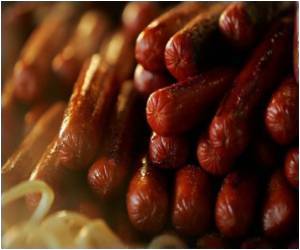A recent paper suggests producers may want to adjust pig diets when including distillers dried grains with solubles (DDGS). The paper was published in the Journal of Animal Science.

The researchers formulated six corn-soybean meal diets to test the effects of saturated fat additives on carcass fat quality in pigs. Five of these diets contained DDGS.
According to the researchers, pork produced from pigs fed DDGS have reduced shelf life and increased susceptibility to oxidative damage. Oxidative damage affects texture, color, juiciness and the overall flavor of pork products.
"Distillers dried grains contain unsaturated fatty acids and those fatty acids are deposited into the fat of the animal," said Hans-Henrik Stein, study co-author and Department of Animal Science professor at the University of Illinois. "From a health standpoint, that's a good thing, but it can be a problem when producing pork products like bacon."
According to Stein, high levels of unsaturated fats make pork belly fat too soft to slice for bacon. To counteract this problem, producers have included saturated fats such as corn germ, beef tallow, palm kernel oil and glycerol in diets containing DDGS in order to make the fat firmer.
For this study, corn germ, beef tallow, palm kernel oil and glycerol were each added to a diet containing DDGS. The researchers compared the performance of pigs fed each of these diets to the performance of pigs fed a diet containing DDGS with no saturated fats added and a control diet containing corn-soybean meal but no DDGS.
Advertisement
The researchers found that pigs fed the control diet containing no DDGS had greater belly flop distances than the pigs fed the other diets. There was no difference among the pigs fed the five diets containing DDGS.
Stein suggested that producers feeding high levels of DDGS reduce the amount fed in the last 3 to 4 weeks before harvest to avoid the softening of fat.
Source-Eurekalert













